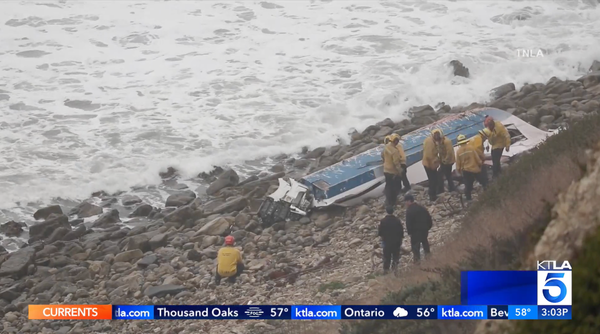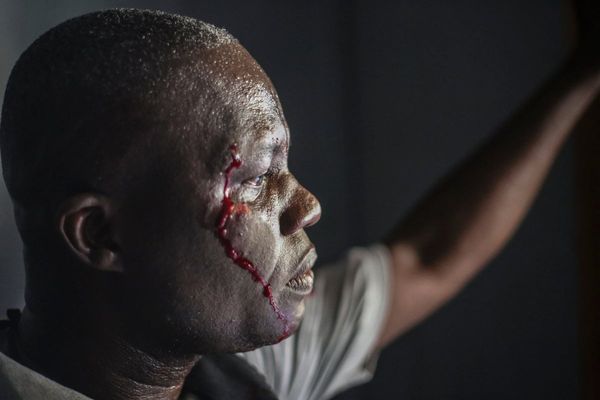
A digital archive of more than 200 significant speeches by Australian women throughout history has launched today, cataloguing the impact women have had on the nation’s public debate from 1859. A collaboration between the Victorian Women’s Trust and digital agency Your Creative, Madam Speaker aims to correct the “invisibility” of women’s voices and contributions to Australia by showcasing important speeches on topics including politics, social issues, arts and culture, geopolitics, industry, military, the environment and more.
While all speech transcripts and recordings exist elsewhere on the public record, Madam Speaker organises the sources in a singular archive, making it easier to search and use as an educational tool. “The hope is it’s used by the general public, yes, but also by educators to rebalance references,” Your Creative co-founder Lauren Crystal tells Crikey.
For Mary Crooks, executive director of the Victorian Women’s Trust, Madam Speaker contains a pointed message: “Ultimately, this archive is an activist call, urging institutions like the National Press Club, for example, to clear away any lingering bias that still clouds the visibility of women’s voices.”
The project team aims to have at least 800 speeches catalogued by 2026. Of those currently archived, a few that Crikey readers might particularly enjoy include:
- Trade unionist Muriel Agnes Heagney debunking the arguments against giving female industrial workers equal pay in 1937: “Apart from the fascist countries, where women have been degraded to the role of breeding machines and domestic slaves, the current agitation has its genesis in sympathy for the unemployed boys and youths, who through the hard conditions of the past few years find themselves stranded.”
- Writer Kate Jennings’ provocative “front lawn speech” in 1970, delivered at an anti-Vietnam War rally at the University of Sydney: “I say to all you highminded intellectual women who say you’re liberated with such force and conviction … the women in the suburbs are no concern of yours? Your mother is no concern of yours? So long as you think you’re liberated, all’s well.”
- Civil rights activist Faith Bandler on pursuing Reconciliation in 1999: “The fair-minded people out there can come along with us. None is without fault, none is without blemish, but they greatly outnumber the objectionable and the crude … It’s time for us to remember that rights are not handed on a platter by governments, they have to be won.”
But there was one particular piece in the Madam Speaker archive that felt all too relevant to today’s political discourse. It relates to pioneering feminist Henrietta Dugdale in 1884, who was pushing back against the suggestion from a fellow suffragette that only women property-owners should be extended the right to vote (I’m sure I don’t need to spell out why this hits as hard in 2024 as it did 140 years ago).
Here’s an extract of the reporting on her impassioned argument:
‘Against a system of voting rights that is tied to property ownership’, as reported in The Argus, June 24, 1884.
A meeting of members of the Victorian Women’s Suffrage Society was held last night at the Bourke-street Coffee Palace, the Rev. Dr. Bromby presiding, and about 50 ladies and 20 gentlemen being present. The objects of the meeting, according to the advertisement calling it, were to decide upon a platform and rules and to appoint officers.
Mrs. DUGDALE proposed the following motion :—
“That the platform of the association be to obtain the same political privileges for women as now possessed by male voters, with the restriction of an educational test by writing legibly the name of the candidate on the ballot-paper.” She thought that the platform proposed was the grandest that had ever been placed before the country.
Mrs. WEBSTER proposed the following amendment :—
“That this meeting desires to obtain the parliamentary franchise for all women who are ratepayers and householders, and who are called upon in that way to support the state, and this meeting pledges itself to use all constitutional means to attain that end.”
She stated that if the amendment were adopted it would increase the number of voters in the colony to the extent of 1,700 or 1,800. It had always been a principle of the British Constitution that nothing should be taxed without representation, and therefore women who were taxed were entitled to the parliamentary franchise.
Mrs. DUGDALE stated that she had examined the English laws referring to women, and had found them barbarously unjust. She had resolved that she would never miss an opportunity of agitating for more justice to women, and had assisted to form this society, but not for ratepayers only. (Hear, hear.) In her attempt she had been most nobly aided by the press, who had published all her ideas even if they were utterly opposed to their own. During the last 17 years she had known many women’s lives utterly wrecked by the barbarous laws of a barbarous age. The barbarous age was happily gone, and the barbarous laws must follow it. It would not be justice to give the votes to those women only who were ratepayers.
There were 1,700 women who were ratepayers, but there were 197,000 other women who ought to be included when the suffrage was granted. She related several instances in which women had been shamefully treated by their husbands and then said that ratepaying suffrage for women only might do in England, because they had only ratepaying suffrage for men there, but there was universal suffrage here for men and it must be obtained for women too.
One of the newspapers had taken up the cry about women being too conservative and devoting too much time to clergymen. They might perhaps do the latter if nothing was given them to do, but if all clergymen resembled the worthy chairman there would not even then be any harm done. As to the charge about women being too conservative, she might state that the women were the democracy of the earth. The country which was the first to grant the suffrage to women would be the grandest and brightest in the world and would be the foremost on the road of real progression. (Hear, hear.)
The CHAIRMAN called attention to the fact that those who spoke in favour of the amendment did not speak against the main proposition but thought it more expedient and more likely to secure success, if they went in the way to work that as proposed in the amendment. The amendment was then put, but only two hands were held up for it, and all the rest of the meeting voted for the motion, which was declared carried almost unanimously.
Have something to say about this article? Write to us at letters@crikey.com.au. Please include your full name to be considered for publication in Crikey’s Your Say. We reserve the right to edit for length and clarity.







